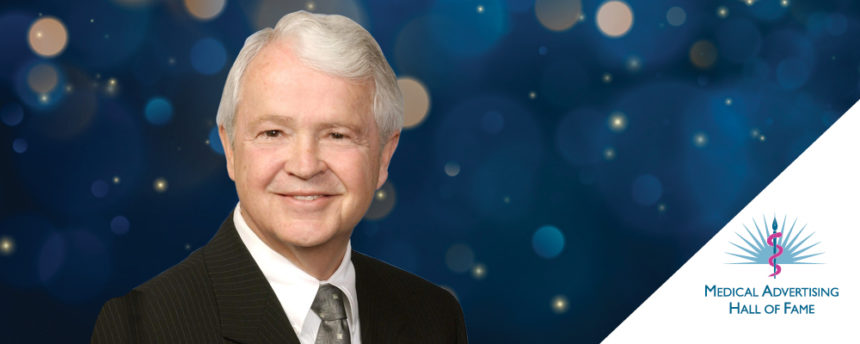Agency entrepreneurs Tom Harrison and Larry Lesser headline this year’s Medical Advertising Hall of Fame class alongside Service to Industry award recipient John Kamp.
John Kamp
Most MAHF inductees are celebrated for their creative or strategic bona fides. John Kamp, however, enters the Hall as the industry’s Constitutional champion.
That doesn’t overstate his case. For the last three decades, Kamp has ranked among the industry’s fiercest, savviest advocates for free speech – the First Amendment right of medical marketers to communicate freely about therapeutic and treatment options. It’s not a stretch to say that, without Kamp’s thoughtful brand of advocacy today’s healthcare marketers might be considerably more limited in what they can say and where they can say it.
“John helped us find a way to effectively get people in government to understand the societal value of healthcare communications,” says Publicis Communications COO and former Publicis Health CEO Nick Colucci. “He helped teach us how important it was to engage with government and regulatory officials.”
Though he often deemphasizes his contributions, Kamp clearly wouldn’t push back against Colucci’s description of him as a teacher. “I’ve always thought of myself as an educator and a storyteller,” he says. “When you break it down, lobbying is just education of congressional staff and [federal] agency staff.
Which isn’t to downplay Kamp’s ability to finesse such politically fraught discussions. During his tenures at the American Association of Advertising Agencies (4As) and the Coalition For Healthcare Communication, Kamp confronted a landscape that was downright hostile to pharma as often as not. For years, there have been rumblings that Congress would limit or eliminate the tax-deductibility of pharma marketing expenses, while still allowing Budweiser or Apple or anyone else in any other category to maintain the write-off. Kamp pushed back against this through education, keeping his voice low and steady in an era when diatribes generated the most headlines.
“John helped us find a way to effectively get people in government to understand the societal value of healthcare communications.”
Nick Colucci, Publicis Communications
Colucci, in fact, believes that Kamp’s work has saved and/or created innumerable jobs. “If the tax deductions or DTC had gone away I’m sure the industry would have adapted,” he says. “But it certainly wouldn’t have created the work and the jobs that it did.”
Kamp’s career started in an unlikely place: Vietnam, where he spent a year reporting and editing. “I’d write about things like GIs who were delivering fuel along some scary highways and send the stories back to hometown newspapers,” he recalls.
His job at the Federal Communications Commission required a different set of skills. During his ten years at the agency, he worked on a host of issues around deregulation and media, among them the breakup of AT&T. It was at the 4As, however, where Kamp found his true calling. “Defending the advertising industry really worked for me, because a lot of it was about the First Amendment,” he says.
DTC pharma ads on television emerged while Kamp was at the 4As, giving him his first opportunity to advocate on the industry’s behalf. This experience led to the birth of the Coalition For Healthcare Communication, for different reasons than one might expect.
“It started, in no small part, because a lot of the [pharma] companies were ratting on each other to the FDA,” he says. “You’re complaining about the other guy’s marketing? To the FDA? That didn’t seem productive.”
When a handful of agency execs approached the 4As about creating a single organization to voice industry concerns and defend it, Kamp was enlisted as one of the Coalition’s first leaders. He unified messaging and persuaded reluctant allies for nearly two decades, right up until his retirement from the group in 2018.
Not surprisingly, Kamp hopes to be remembered first and foremost as a teacher. Colucci, however, believes his longtime peer will be remembered just as much for his leadership and tactical savvy.
“I’d watch him sit in front of chiefs of staff of Congress and he’d always be two steps ahead of everybody. He was like Columbo,” he says. “John used the First Amendment, but he also had a keen sense of what was right. He made everybody better.”
From the February 01, 2020 Issue of MM+M - Medical Marketing and Media







